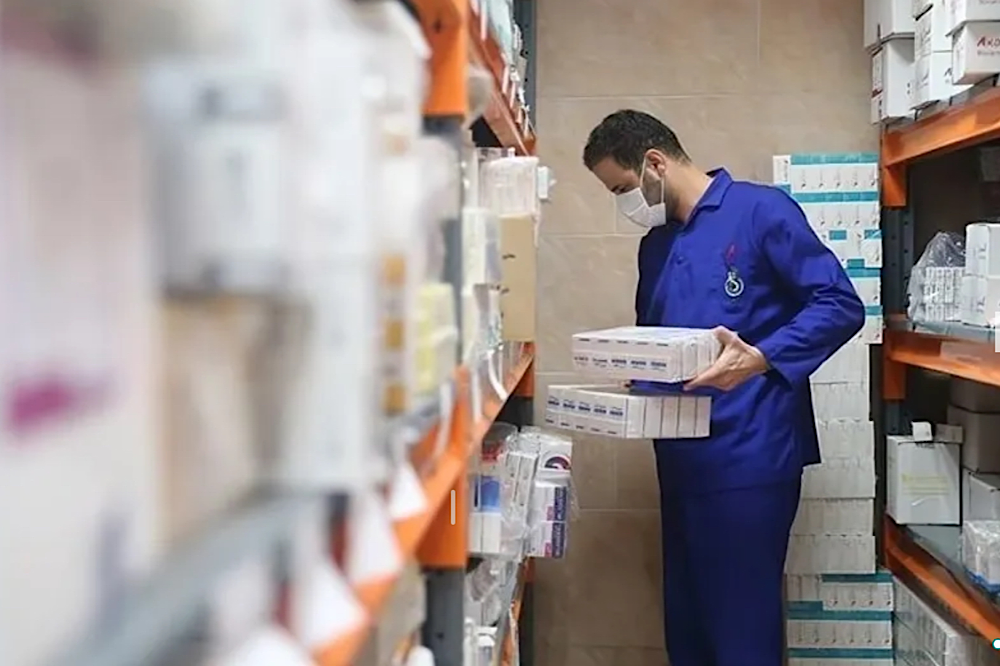Iran’s crisis causes shortages of drugs for chronic diseases and basic care
Pharmacists in the capital "advise" customers not to get sick or to take preventive steps like during the COVID-19 pandemic, wearing masks and keeping distances. Western sanctions and critical issues in domestic production are emptying the shelves. For the Minister of Health, there are no emergencies but he scraps special tariffs in foreign currencies.
Tehran (AsiaNews) – “The only advice I can give citizens is to avoid getting sick because there simply are not any medicines available,” said Tehran pharmacist Hossein Behmanesh speaking to IranWire news website.
At the start of the COVID-19 pandemic when no vaccines or treatments were available to fight the virus, Behmanesh urged his customers to take preventive measures, such as wearing masks and avoiding crowded places, because of shortages of medicines. “Take care of yourselves… because there’s no medicine to help you,” he now warns.
This is the result of widespread shortages of medicines, the result of ongoing economic and social woes.
The Islamic Republic has been in the crosshairs of the United States and Israel for a long time. More recently, it was again front page news after Italian journalist Cecilia Sala was locked up for more than three weeks in Evin prison, on the outskirts of the capital Tehran.
The health emergency affects several provinces experiencing shortages in generic drugs and specialised treatments for chronic diseases like diabetes, haemophilia, cancer and multiple sclerosis.
If shelves are empty it is not only because of harsh Western sanctions against the Islamist regime, domestic production is in fact facing critical issues with stocks near zero in Sistan and Baluchistan, Khuzestan, and Isfahan provinces.
The current shortages reflect supply problems, but the crisis in the sector began in 2022 when the administration of then-President Ebrahim Raisi eliminated the 42,000-rial exchange rate for the US dollar for importing medicines.
According to a study by the Iranian Parliament’s research centre, the pharmaceutical sector suffered the second-worst decline among all industries, surpassed only by wood and paper, with a drop in output of 2.6 per cent in the spring and 18.5 per cent in the summer.
Jafar Qaempanah, acting head of the Presidential Office, also reported a 30 per cent drop in overall drug production while many specialists have quit the country's companies and moved abroad.
In the year just ended, problems with domestic supply chains were compounded by a 13.6 per cent decline in drug imports, customs data show.
Iran’s economic collapse is also evidenced by the decline of rial, the local currency, which lost 35 per cent of its value in six months; in addition, the government has had to close schools, offices, factories due to the energy crisis linked to the embargo.
In the final days of 2024, massive rallies took place in the capital's most important bazaar, on 29 December, when merchants shut down their shops to protest price and exchange rate increases.
Protesters complain about shortages of raw materials, the acute stagnation caused by exorbitant prices, lack of market liquidity and taxes that drain already meagre resources.
Behmanesh shared his first-hand experience of multiple sclerosis drug shortages.
“For over six months, no foreign MS medications have been distributed to pharmacies. Even domestically produced alternatives are hard to find,” he explained.
“As a pharmacist,” he added, “I must acknowledge that the quality of Iranian-made medications, especially for chronic illnesses, is significantly lower than their foreign counterparts. This has harmed patients who are forced to rely on domestic drugs.”
Addressing the issue, Mohammadreza Danesh, a researcher and pharmaceutical industry expert, noted that, “Given the shortage of imported raw materials, it is predictable that high-quality materials are not available to the few pharmaceutical companies still operating in Iran.” What is more, “The currency crisis has exacerbated this issue."
Yet, despite the warnings, Health Minister Mohammadreza Zafarghandi dismissed naysayers, announcing instead that specialised foreign currency rates for drugs will be completely eliminated this year.
23/04/2020 09:56







.png)










